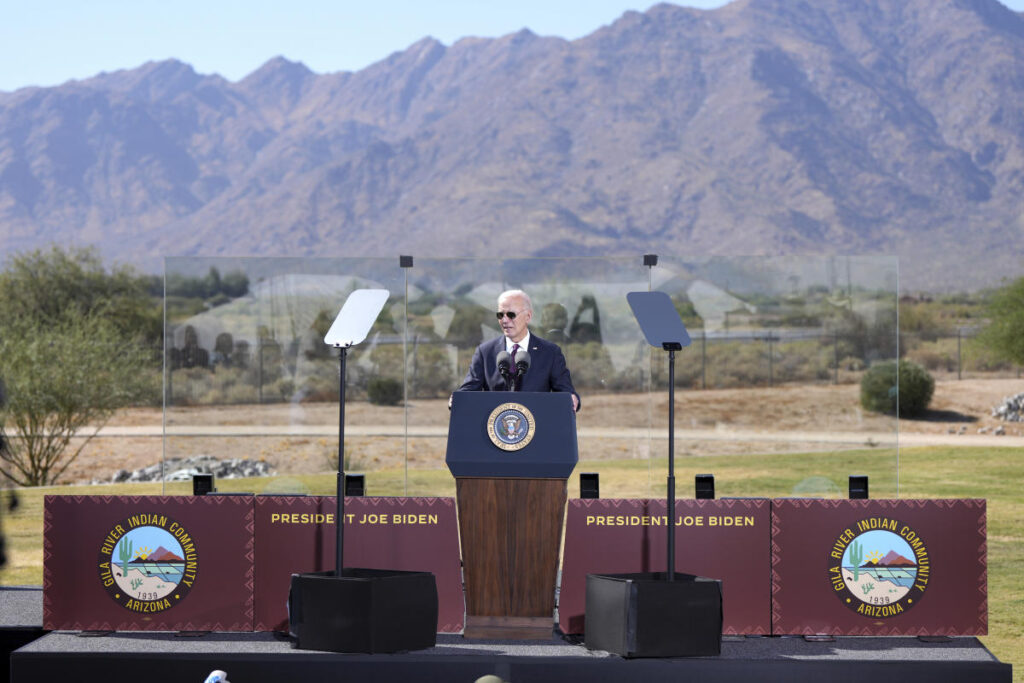On a historic day in Laveen Village, Arizona, President Joe Biden delivered an unprecedented apology for the systematic abuses Indigenous children faced in federal boarding schools over the past 150 years. This apology marked the first time a sitting U.S. president publicly acknowledged the long-neglected suffering inflicted by the federal government. Biden emphasized the pain experienced by generations of Indigenous children, who were forcibly removed from their homes, stripped of their cultural identities, and subjected to physical beatings and spiritual assault when speaking their native languages. “We should be ashamed,” Biden stated in front of a crowd representing the Indigenous community, which included tribal leaders, survivors, and their families. Through this apology, he characterized the government’s involvement in these abuses from 1819 onward as one of the darkest chapters in American history, inviting reflection on the deep-rooted trauma still felt in Indigenous communities today.
The response to Biden’s apology from many Indigenous people was one of mixed emotion. For some, like Bill Hall, a 71-year-old survivor who faced years of intense suffering after being taken from his Tlingit community in Alaska, the apology was a revelation that initiated tears of acceptance. Hall’s experience at the boarding school culminated in a lifelong struggle with shame and trauma. He expressed hope for future actions supporting healing alongside acknowledging the pain. Others, like Rosalie Whirlwind Soldier from the Rosebud Sioux Tribe, reported feeling validation for her and others’ tragic experiences in boarding schools, including physical abuse and the eradication of their cultural identities. However, the sentiment that an apology alone is insufficient echoed through her words, underscoring a broader yearning for substantive reparative actions to accompany the acknowledgment of historical injustices.
The federal government initiated the boarding school system as an attempt to assimilate Native American, Alaska Native, and Native Hawaiian children, and to dispossess tribes of their lands. The ongoing investigation led by Interior Secretary Deb Haaland uncovered harrowing details, including child mortality rates, with 973 documented deaths among Indigenous children in these institutions, although many believe the actual toll is much higher. The recommendations emerging from this investigation seek to provide essential resources for mental health treatments, as well as programs for cultural and language revitalization, aimed at fostering healing and resilience within Indigenous communities.
Tribal leaders expressed hope that Biden’s apology and actions would correlate meaningfully in the aftermath. Gila River Indian Community Gov. Stephen Roe Lewis mentioned Biden’s commitment to addressing the boarding school issues, hinting at a new framework to remedy past wrongs. Benjamin Mallott, president of the Alaska Federation of Natives, emphasized the crucial need for actions such as revitalizing Indigenous languages and cultures, and elaborated on the urgent necessity to return the remains of Indigenous children who perished in these schools. Victoria Kitcheyan, chairwoman of the Winnebago Tribe of Nebraska, highlighted that true healing begins only when tribes have a route to bring their lost ancestors home for proper burial rites.
Bipartisan recognition of Biden’s apology emerged from political leaders such as Democratic Sen. Elizabeth Warren and Republican Sen. Lisa Murkowski. Warren lauded the apology as a pivotal movement towards accountability, while Murkowski underscored its importance in acknowledging historical pain and injustices within Indigenous communities. Both senators advocated for the establishment of a truth and healing commission as a means to address the extensive damages inflicted on Native children and their cultures, emphasizing the necessity for continued dialogue and the honest confrontation of this painful history.
As Biden delivered his remarks, a palpable sense of gratitude and acknowledgment permeated the crowd, culminating in expressions of appreciation and applause following the apology. Tribal members stood in respect, some recording the moment while others donned cultural garments representing their heritage. Yet, amidst the applause, there lingered a recognition of the daunting journey ahead in the quest for complete healing. Survivors like Hall remain wary, highlighting the slow process required to mend centuries of inflicted trauma and loss. “It took a lifetime to get here. It’s going to take a lifetime to get to the other side,” he lamented, echoing a collective understanding that while the apology was a significant step towards healing, the path forward would require sustained commitment and tangible actions to address the long-standing challenges faced by Indigenous communities.

